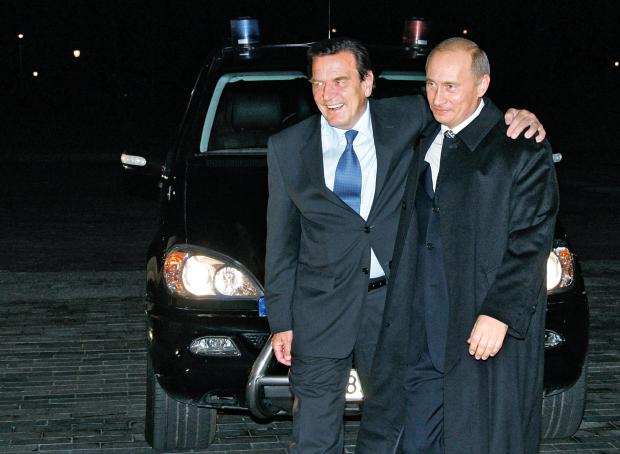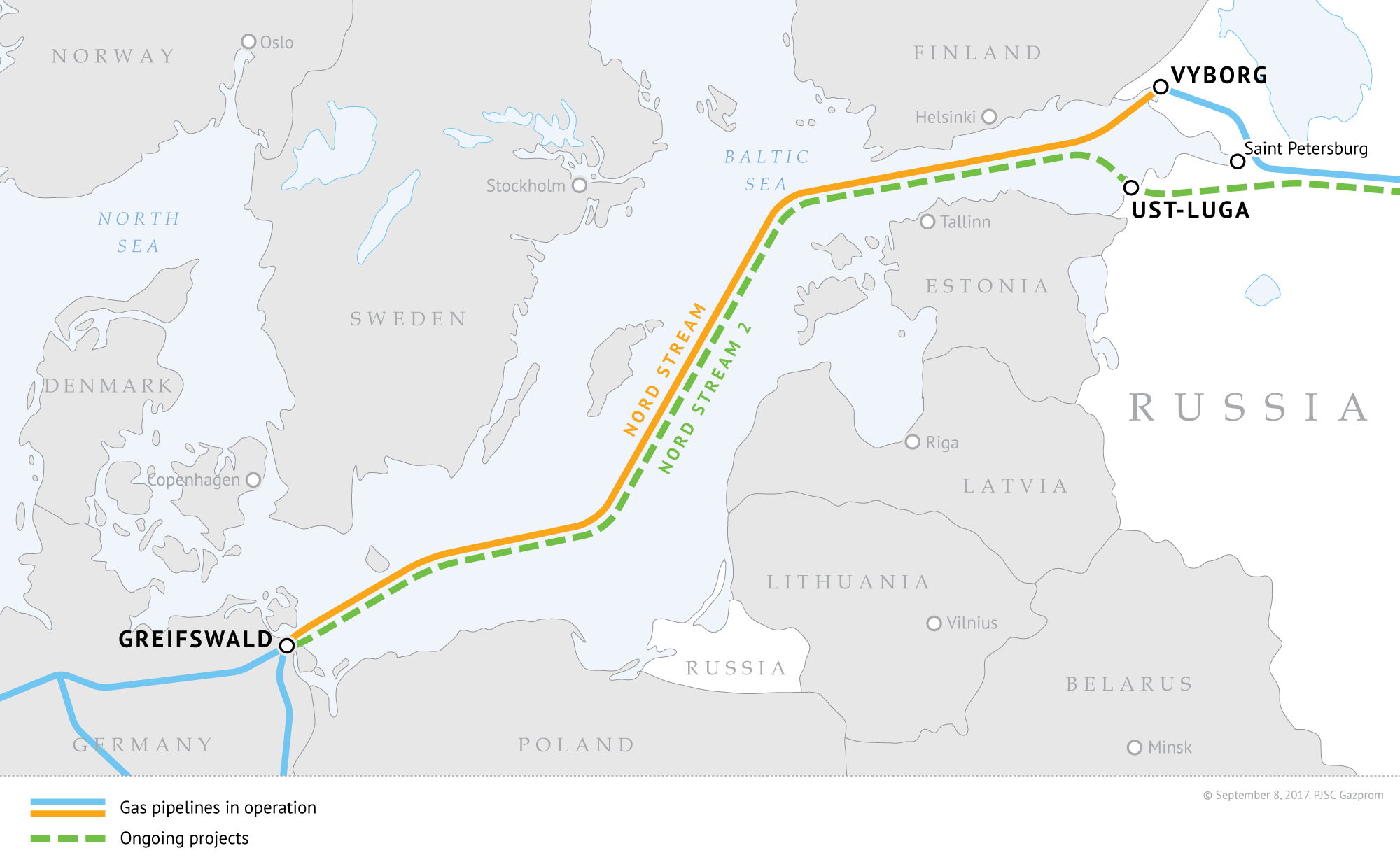As the US, Britain, and the Baltic states deliver arms, German officials insist on using diplomacy instead of raising Ukraine’s defense capabilities so that the country could fend off a potential Russian invasion and make its costs unbearable for Moscow.
Why is Germany so adamant in its refusal to arm Ukraine even with defensive weapons?
In an interview published on 23 January in the newspaper Die Welt, German Defence Minister Christine Lambrecht said that the German government won’t allow Russia to press on Germany “neither in Ukraine nor in Mali.” According to her, Germany will do everything in its power for de-escalating the Russian-caused crisis, yet supplying weapons to Ukraine is not an option for Germany.
“Weapons deliveries would not be helpful at the moment – that is the consensus in the federal government,” she said.
Earlier, on 17 January during her visit to Kyiv, German Foreign Minister Annalena Baerbock assured that Germany would “do our all to guarantee Ukraine’s security” and any further Russian aggression in Ukraine “would have a high price.” However, she also reiterated Germany’s refusal to send defensive weapons to Ukraine despite Kyiv’s requests.
Meanwhile, Germany’s NATO allies bring arms to Ukraine and promise more in the future:
- As other NATO members are mulling provisions to Ukraine, Britain airlifted light anti-tank weapons to Kyiv a week ago.
- Late last week, the Baltic states – Estonia, Latvia, and Lithuania – announced their intention to transfer American-made anti-armor and antiaircraft missiles to Ukraine.
- Later the US shipped a military aid package including the Javelin anti-tank missiles.
- Meanwhile, Estonia is also trying to provide Ukraine with Soviet-era howitzers, which previously belonged to East Germany, but Berlin’s approval of this move is still pending.
73 East Europe experts call on Germany to “fundamentally correct” Russia policy
In his interview with Euromaidan Press, security analytic Mykhailo Samus mentioned the existence of an unofficial embargo by Western European nations on supplying weapons to Ukraine and Georgia, existing since at least the Russo-Georgian war of 2008.
Experts and politicians mention three main reasons as to why Ukraine isn’t among importers of German weaponry.
Historical reason: pacifism due to guilt over Germany’s militarism in the past
The heinous consequences of the Nazi reign in 1933-1945 still define modern German politics and attitudes.
“There’s the obvious legacy of Germany’s own militarization in Europe during two world wars that has led many German leaders to view any military response as the last resort,” said Rachel Ellehuus, deputy director of the Europe, Russia and Eurasia program at the Washington-based Center for Strategic and International Studies.
The war guilt before the USSR ingrained in the German modern political discourse has been projected onto modern Russia, the formal successor to the Soviet Union.
“Many Germans have residual guilt towards Russia and believe that they did not compensate Russians enough for the atrocities of the Second World War,” Stefan Meister, ECFR Alumni, wrote in his paper published in April 2014.
Even the most recent visit of the German foreign minister to Moscow on 18 January couldn’t get along without references to the German invasion of the USSR in 1941-1945 as Ms. Baerbock mentioned the “suffering and destruction that we Germans brought upon the peoples of the Soviet Union.”
“The idea that Germany delivers weapons that could then be used to kill Russians is very difficult to stomach for many Germans,” Marcel Dirsus, a nonresident fellow at the Institute for Security Policy at Kiel University (ISPK), told DW.
The Kremlin propaganda encourages the view that the aggressive war by Nazi Germany was waged only against Russia while trying to turn Ukraine from a victim of the war into a Nazi accomplice, German Marieluise Beck wrote in 2017.
- Read also: Nazi dreams of an enslaved Ukraine: the blind spot of Germany’s historical memory – Timothy Snyder
“But letting Estonia pass on the old Soviet-designed 122-mm D-30 howitzers to Ukraine might be an acceptable compromise,” he believes.
A recent open letter signed by 73 experts on Eastern Europe and security calls on Germany to change the country’s policies towards Russia.
“The crimes of Nazi Germany on the territory of today’s Russia from 1941 to 1944 are not suitable to justify the German reluctance to react to the Kremlin’s revanchism and nihilism under international law,” the letter reads.
Economic reason: Germany’s close ties to modern Russia
For decades, the basic concept behind German foreign policy toward the USSR and then Russia was “Wandel durch Handel” (change through trade), based on the belief that Western norms may slowly transform kleptocracies into liberal democratic states. Gerhard Schröder, German Chancellor (1998-2005) at the beginning of Putin’s era in Russia, used to be a vocal proponent of this policy.
- Read also: How German companies violated sanctions to bring Dutch sea platform to luxury marina in Crimea
Ms. Baerbock has recently said that the Russian pipeline Nord Stream 2 shouldn’t be allowed to operate should Russia escalate the crisis in Ukraine. Yet this measure seems to be for debate in the current German government as last week Ms. Lambrecht said the project “should not be dragged into this conflict,” according to DW.
- Read also: How Siemens chose to ignore the obvious. An investigation into the Crimean sanctions break (2017)
Formal reason: German arms export policies
During her visit to Kyiv on 17 January, Ms. Baerbock referred to the German government’s restrictive arms export policy “rooted in our history” explaining Germany’s unwillingness to send weapons to Ukraine.
Dmytro Shulga, European Programme Director at the International Renaissance Foundation, wrote in his Facebook post that the German government’s references to the domestic policy of not supplying weapons to conflict zones are a “standard official excuse reply,” alongside mentioning the “historical responsibility.”
The document titled “Political principles of the federal government for the export of weapons of war and other armaments” which defines this policy is publicly available on the website of the Federal Ministry for Economic Affairs and Climate Action.
“…unless a case comes under Article 51 of the UN Charter,” the document reads. The mentioned article envisages the right of countries for self-defense, which is clearly the case for Ukraine in current circumstances.
Moreover, Germany’s restrictions on arms exports to conflict zones weren’t consistent in the past, which shows that Berlin had previously applied this exception:
“There have always been borderline cases here, such as the Kosovo war or support for the Kurds against IS in Syria,” said Sabine Fischer, a senior Russia expert at the German Institute for International and Security Affairs.
Read more:
- “If ‘never a war again,’ what do you tell the people who are being attacked?” Ukraine parliament appeals to Bundestag
- 73 East Europe experts call on Germany to “fundamentally correct” Russia policy
- Germany blocks Ukraine’s arms purchase from NATO as unofficial arms embargo on Ukraine continues
- Daily review: Germany keeps blocking arms exports to Ukraine
- Putin actively using Cold War Stasi agent network in Germany, Reitschuster says
- Berlin concerned by Ukraine using Bayraktar drone, but not by Russian-separatist side using banned weapons (2021)
- Rebecca Harms: Germany and France should stop supporting Russia’s unconditional return to PACE (2019)
- Nazi dreams of an enslaved Ukraine: the blind spot of Germany’s historical memory – Timothy Snyder
- How Siemens chose to ignore the obvious. An investigation into the Crimean sanctions break (2017)
- Germany’s historical responsibility towards Ukraine discussed in Bundestag (2017)
- Why we need a discussion about Germany’s historical responsibility toward Ukraine (2017)
- How German companies violated sanctions to bring Dutch sea platform to luxury marina in Crimea
- How pro-Kremlin think tanks spread propaganda in the West








